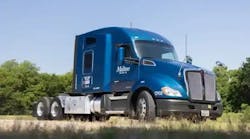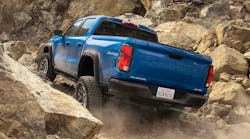Valence Technology, Inc. announced earlier this month that it is partnering with Energy CS, a plug-in hybrid conversion company, to deliver fuel-efficient electric vehicles to California’s South Coast Air Quality Management District (SCAQMD). Hybrid Toyota Prius cars, already efficient by most measures, have been outfitted with Valence’s rechargeable, phosphate-based lithium-ion batteries and custom monitoring/control electronics from Energy CS with the goal of extending the vehicles’ zero-emissions operating range and doubling fuel economy.
SCAQMD has been testing and evaluating vehicle plug-in technology for the past several years and is now working with the State of California to support the “Plug-in California” initiative sponsored by SCAQMD board member and Riverside mayor, Ron Loveridge. Another SCAQMD board member, Santa Ana Mayor Miguel Pulido, is test-driving one of the cars himself. “We look forward to releasing the demonstration results over the next several months,” he said.
According to Valence, numerous school districts from Florida to Seattle are also testing their batteries as part of a system to power hybrid school buses, while other companies are testing the technology to run auxiliary power units (APUs) for trucks. “The transportation industry has been watching the development of battery technology, ours and others, very closely,” said Peter Guggenheim, Valence regional sales manager with responsibility for the Central U.S., Canada and Mexico. “Safety, cycle life and pricing have been issues, but now advanced battery systems are starting to make sense for more applications.
“Our own phosphate-based, lithium-ion battery technology, which we call ‘Saphion,’ was developed to provide more energy with fewer emissions than the nickel-metal-hydride (NiMH) batteries often used in hybrid vehicles now,” Guggenheim explained. “Plus the Saphion batteries are safer and have a longer life than traditional lithium-ion batteries. Unlike traditional lithium-ion batteries, such as those used to power computers and other small electronic devices, these replace the metal oxide cathode material with phosphates, which are powerful yet chemically and thermally stable. They can also be made in any shape or size. We believe that phosphate-based lithium-ion batteries are the future of hybrids,” he continued. “It is just a matter of time.”
The development and widespread commercialization of hybrid vehicles, battery-based auxiliary power units and even plug-in vehicles have all been limited to some extent by current battery technology. It hasn’t been a simple matter of “If you built a better battery, they will come,” though. Advance technology batteries have had to compete with traditional lead-acid batteries in price, weight and size, as well as delivering enhanced performance and dependable safety.
Studies indicate that the market for advanced batteries of various types has been growing, however, due in part to the growth in hybrid/electric and all-electric vehicle usage and to the development and sale of portable computers. According to a report from Business Communications Company large and advanced batteries (including non-automotive lead-acid) represented a $2.9 billion market in the U.S. in 2003 and the market is expected to hit $4.5 billion in 2008, making it one of the “largest and fastest growing technology-driven electrical/electronic sectors.”


